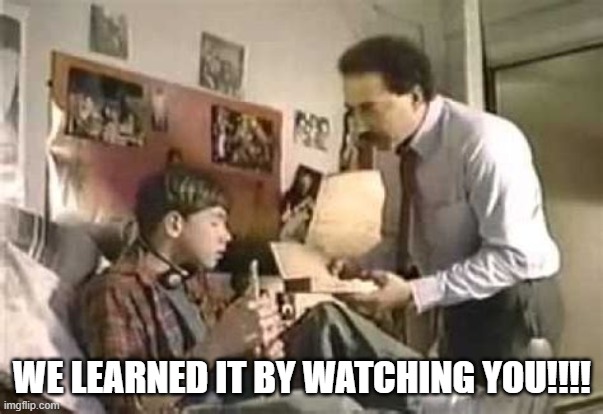I find it a bit unnerving how a kind of quasi-religious worldview has taken over certain segments of the population, with baked in assumptions about what is or is not good, true, and right. This can be exemplified by the word "problematic," which is often used in a manner as if there is a clear and obvious Book of Law as to what is or is not problematic. This is the One, True Way that everyone must be, and if they aren't, they are Problematic! I mean, maybe that's always been the case, but it seems to have become more vociferous, with more fervor, the last decade or so.
What is so often lacking is a sense of cognitive fluidity and openness - not codifying one's opinions, not crystallizing around a certain group of tenets, taking each instance (and person) as unique, and questioning one's own assumptions, rather than knee-jerking and pointing the finger, always on the lookout for Problematic Material to go after. What is perhaps most disturbing is the diminishment of openness, of a sense of, "I don't know, it could be - this is what seems true to me." And instead we often get, "No, that is problematic! That is wrong! How dare you think otherwise?!"
"Problematic" is largely a matter of perspective; it is contextual to time, place, and community. It is not hard-wired into the fabric of the universe. Even culturally speaking, it varies by community and sub-culture and--perhaps most importantly--changes over time. What is often lost is that our finding something problematic according to the latest Proper Way to See Things isn't inherently true or of merit. It is a perspectival, temporal snapshot with baked in assumptions and underlying biases.
The latest Thing is probably not--probably never--the Final Thing. To put it another way, our finding something problematic today might be considered "problematic" tomorrow.
Not to mention that the very word itself implies that certain ways of seeing things that differ from our own, or what we deem to be true, are a problem - rather than, quite possibly, simply a different worldview based on different underlying assumptions. This is where I get that quasi-religious vibe: If it differs from my truth, it is a problem. Problems imply solutions, which is rarely just "let it be." This problem-solution mentality doesn't want us to accept two possibilities: One, people see things differently and that's OK, or at least, it is inevitable and beyond our control; two, it may be that how I see things isn't necessary the best or one-true-way to see them.
I also hear people castigating people of bygone eras for not transcending their context or not being ahead of the curve. Not only does this imply a monolithic direction of historical development (e.g. the term "wrong side of history," as if there is a singular historical path we must all take, and implies that we're on the right side!), but it assumes that the views one espouses now are the "one true way" one must think, and if only people could get with the program (even people from 50 years ago!).
I think more important than the ability to put your finger to the wind and adjust to the vue de jour in one's preferred community ("Wait, I forget, is this on the updated list of problematic things?"), is the capacity to be cognitively flexible and non-rigid. Part of this may be entertaining the idea that history--and how we see it--is like a vast water system with endless pathways, rivers, rivulets. It moves on, flows ever towards to sea. We can look back at some backwater and say, "That's problematic!" And in so doing, forget that we also will be looked back on some day, and we're all part of the same flow.
I would suggest that looking back at the past for something to call problematic is a mostly fruitless endeavor. What matters is who we are now and where we're going. Perhaps part of that comes from looking back and deciding who we want (or don't want) to be. We all have past generational elements that we are, hopefully, moving forward along the developmental curve (I'm frequently arguing with my Boomer father about "problematic" things he says, though often am an instant of my own complaint - expecting him to change, rather than just "letting be").
But we could also just release the grip a bit, and recognize that we're all products of our environment, our culture, caught in our own little backwater of history. The point, I think, is to transcend it right now - not what people did 50 years ago, but what we are doing now. Not our neighbor, but ourselves. What sort of artist, person, human being do we (do I) want to be? What is problematic to me? And does worrying about what others do, especially people of long ago, help that in any way, or does it merely prove to be a distraction?
In other words, why are we so insistent that others change, to the point--in some--of actually wanting to re-write who they were so that they are more palatable to our current sensibilities?
In looking at the past, I would suggest that we try to see and accept it as it actually was. That doesn't mean we condone it or have to be the same; if anything, it frees us to choose who we want to be. And in doing so, we change "what is problematic" from being about others, and thus what is outside of our control, and becomes more about our own personal empowerment in being who we want to be.

